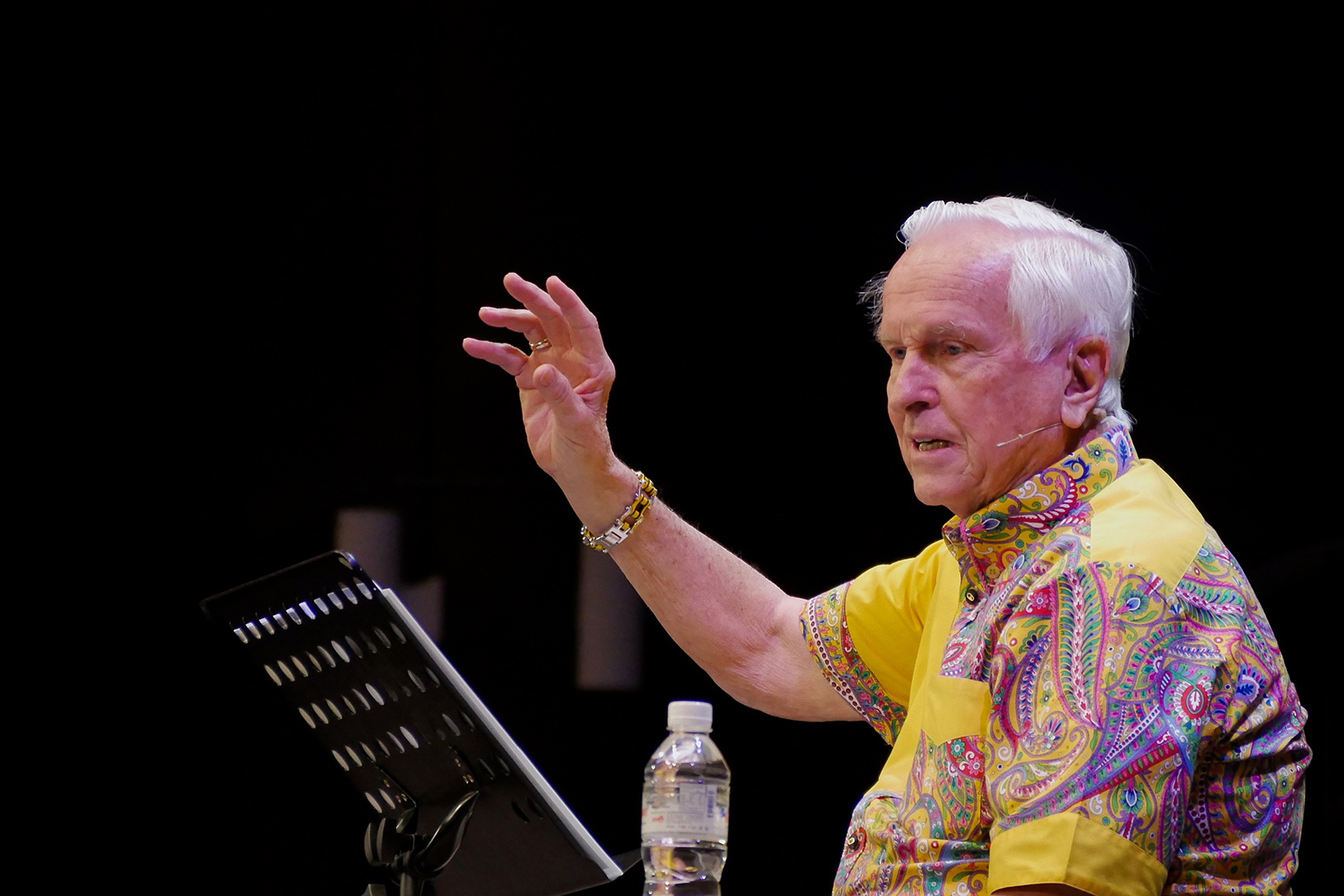“If you marry someone who watches pornography, you can kiss your intimacy goodbye. Because there’s not a woman in Singapore that can compete with porn.”
This sobering statement was how renowned apologist and author Josh McDowell started his keynote at Set Free 2019, addressing Christian leaders in Singapore on matters of sexuality.
We might not be looking for porn, but porn is most certainly looking for us.
McDowell’s point was that the porn epidemic affects the integrity of marriages.
“Why is porn so impactful today? Because it’s available, accessible, affordable, anonymous, appealing, aggressive and addictive,” he said.
The world has always had porn like cavemen art or graffiti on the walls in Pompeii, but the real issue is the unprecedented accessibility and the means by which it is delivered today.
We might not be looking for porn, but porn is most certainly looking for us, McDowell stressed repeatedly. Just look at the size of the delivery system: The web.
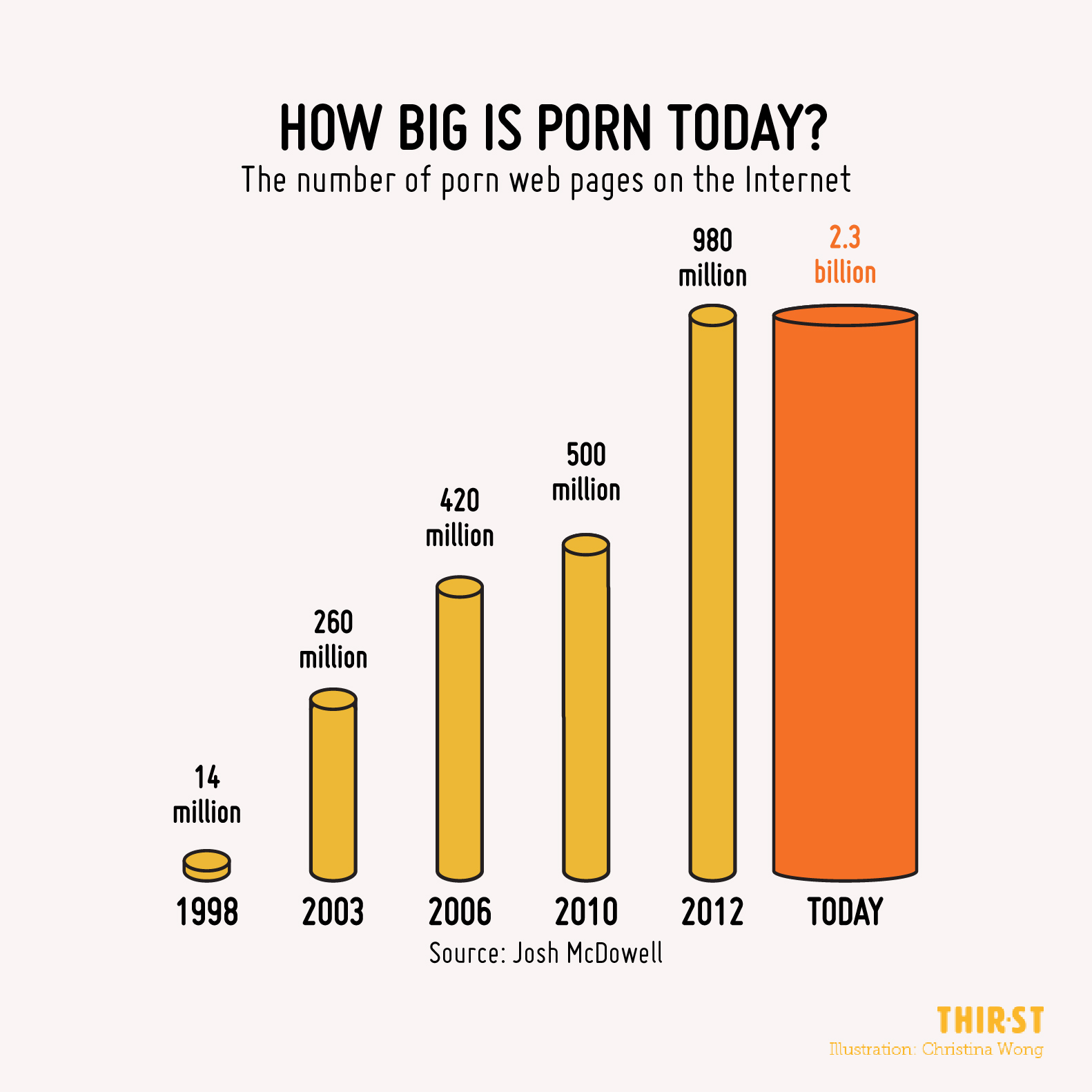
To demonstrate the scale of the problem, McDowell shared that based on his research, there are more than 26 million porn websites now – in a year, over 6 trillion porn videos are watched worldwide.
“Nobody can grasp how big porn is,”McDowell said. “To look at all the web pages, it would take around 8.2 billion days or 23 million years.”

Highlighting the fact that we’re a country with the second most Internet-addicted people in the world, Joanna Koh-Hoe, CEO of Focus on the Family Singapore, confirms that the situation here is escalating because of how connected we are.
51% of Christian young adults and youths have viewed pornography at least once in the past year.
In her keynote, she underscored the gravity of the problem in Singapore: 51% of Christian youth and young adults have viewed porn at least once in the past year.
This statistic was taken from the organisation’s Whole Life Inventory survey, which now has 3 years worth of cumulative data from 14,000 respondents aged 13 and above across churches in Singapore.
There are other figures that emphasise porn’s epidemic nature: It’s the second-biggest sexual issue faced by Christians in Singapore after masturbation.
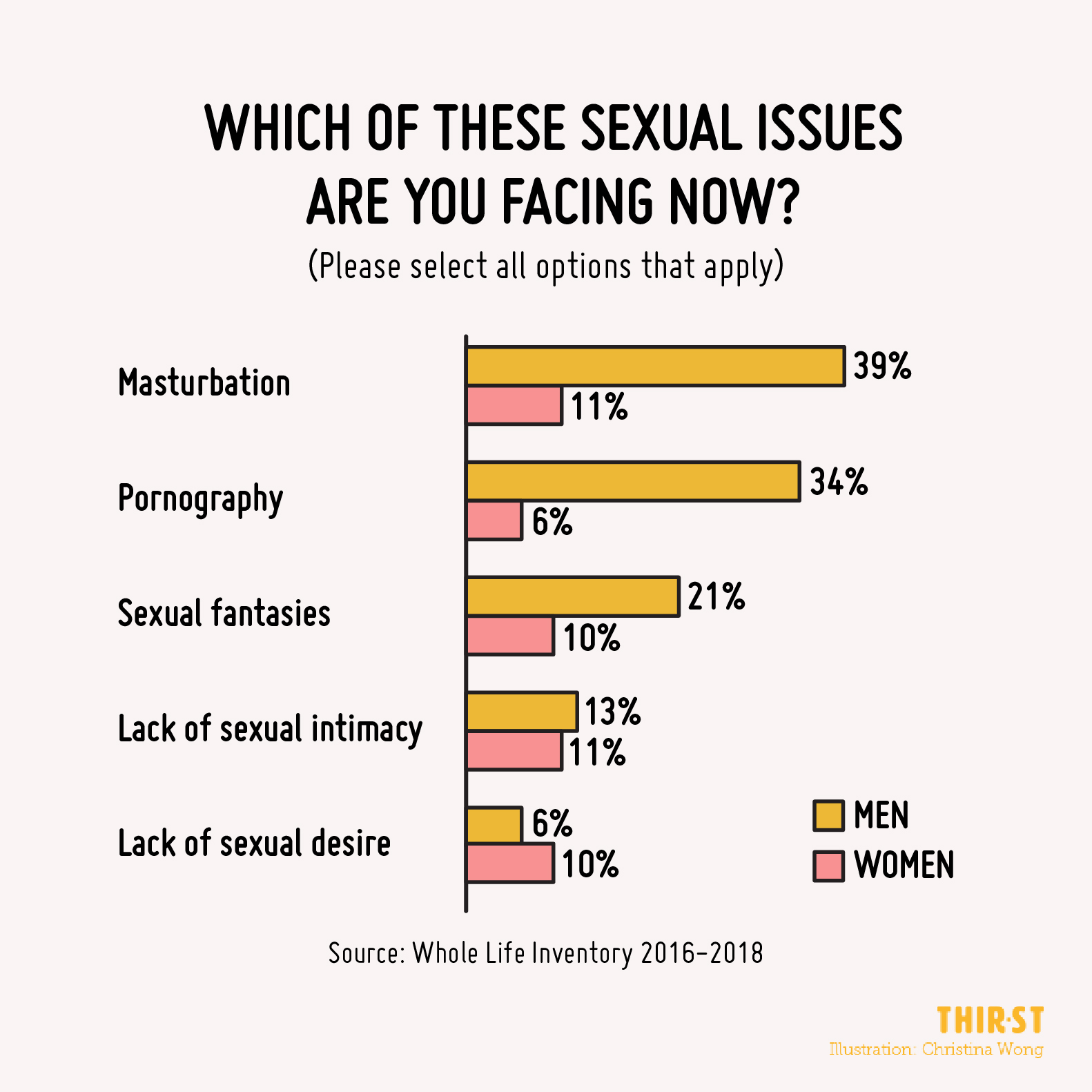
Koh-Hoe further pointed out that the top 3 issues are all correlated. “Typically, for those who engage in habitual masturbation, what feeds their mind is porn,” she noted.
Her presentation supported McDowell’s assertions about the prevalence and predatory nature of porn.
She shared that 69% of respondents had ever viewed porn and 39% had done so in the past 12 months. What’s more, most had been introduced to porn by the time they were in the age range of 13-19, with some being exposed as young as 6 years old.
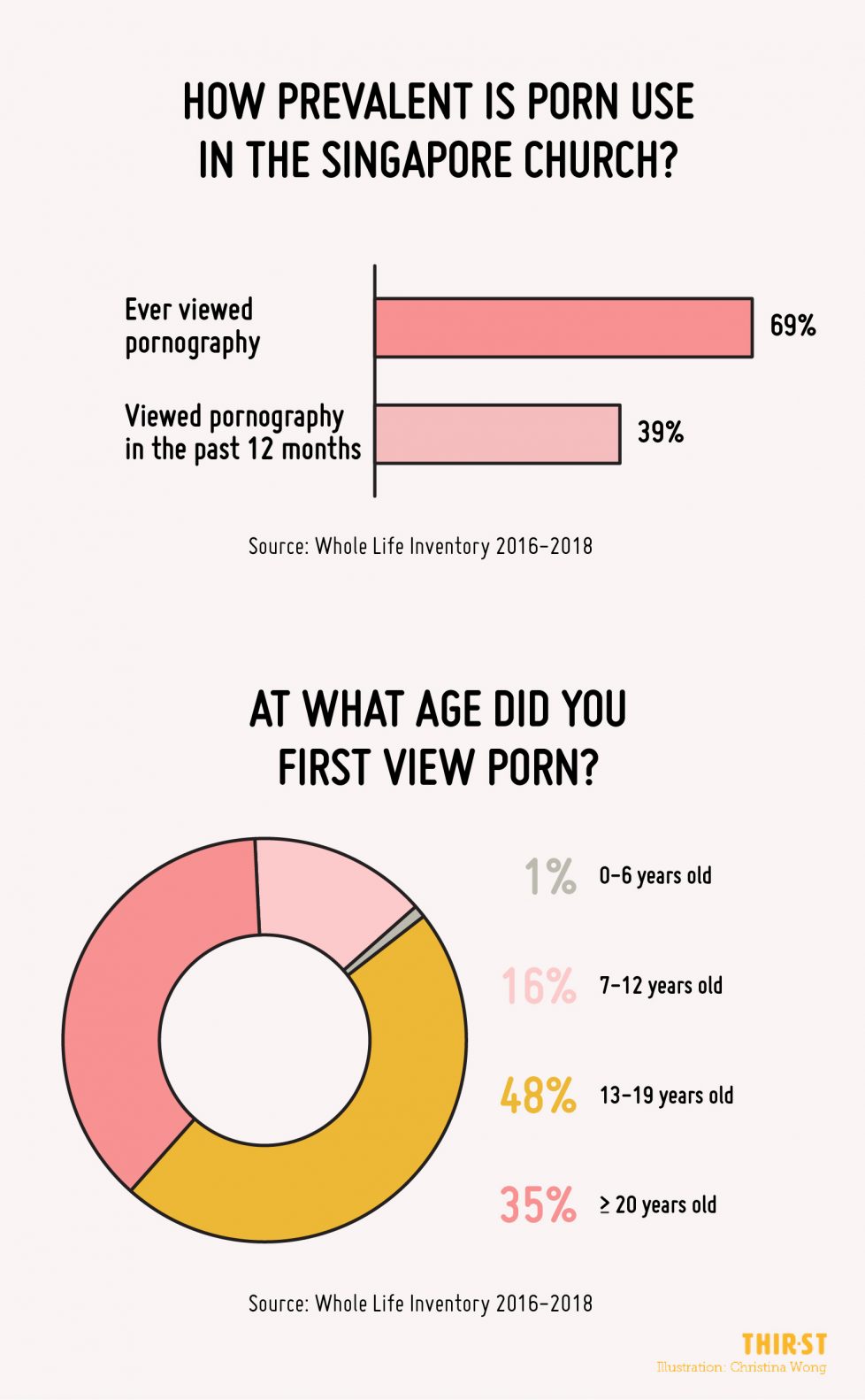
Also worth noting is that while males do have more of a problem with porn, it isn’t just a “male issue” as is often thought, Koh-Hoe said.
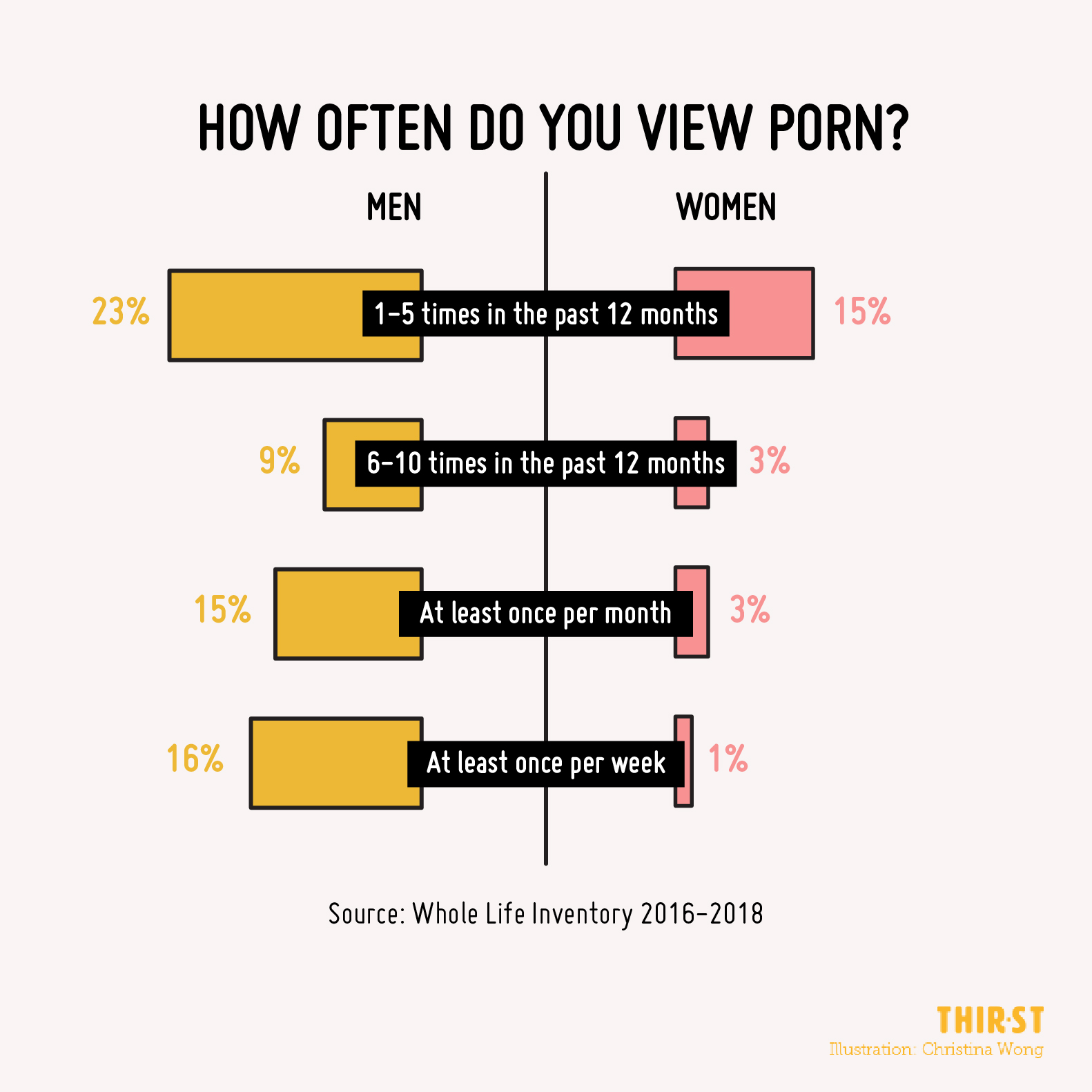
It’s clear that pornography is a massive issue that we need to confront and address – for ourselves and in our churches.
Speaking about younger people who stumble onto porn for the first time, McDowell emphasised that it’s not so much a matter of protecting them from seeing it – but preparing them for the first time they see it.
Two other questions in the Whole Life Inventory survey are particularly telling of how younger people want to learn about sex, only to be contrasted with the reality of how they are actually being taught.
- Who or what should have the primary responsibility for teaching a child or young person about sex and sexuality?
- Who or what is your main source of information for learning about sex and sexuality?
According to the results, after parents (79%), young people wanted to be taught by church pastors/leaders (8%) about sex. However, in their own experience, most received such information through the Internet or social media (24%).
What this means is that if parents or churches don’t teach young people about sex, the Internet will. If biblical sexuality is not taught, the alternative is learning about sexuality from the world.
Koh-Hoe said that there’s also a need to understand how people currently view porn. For instance, some might not even consider porn as an improper sexual activity.
“In our counselling, we’ve encountered married couples who feel that it’s justifiable and healthy to use porn to cultivate greater sexual romance or excitement in their marriage,” she shared.
When it comes to porn, the best defence is not silence. It’s knowledge.
So the key lies in how to prepare ourselves against the moral onslaught of pornography that is already on our shores.
We need good and trustworthy people we can talk to for help regarding sexual matters. And we need to be such people for each other as well as the next generation.
We have to start building authentic relationships with each other so that there is enough trust to be able to speak of sex and sexuality – and then we must speak about them.
As McDowell said: “When it comes to porn, the best defence is not silence. It’s knowledge.” So let’s get equipped and let’s start talking about these things.
Join a national conversation on pornography. Josh McDowell will be speaking this weekend at UNVEIL 2019: Breaking Free, a sexuality summit for youth and young adults. Uncovering the myths behind porn, it also empowers the next generation with practical and positive solutions in their fight with porn addiction.
Held at Suntec on Friday, 15 March (7:30pm-9:45pm) and Saturday, 16 March (9am-3:30pm), the conference will also feature other acclaimed speakers like Dr Donald Hilton and Jessica Harris. Click here to sign up.


